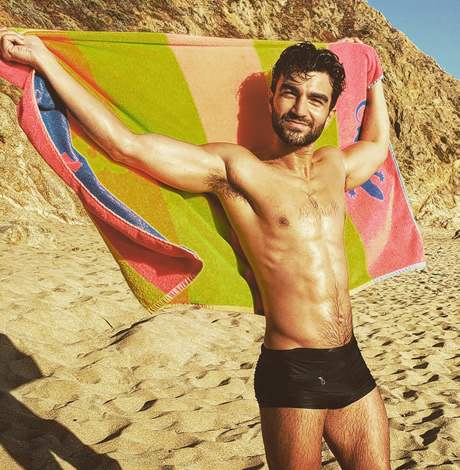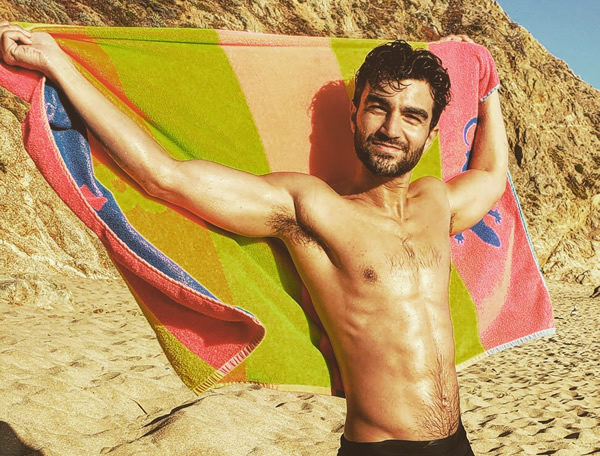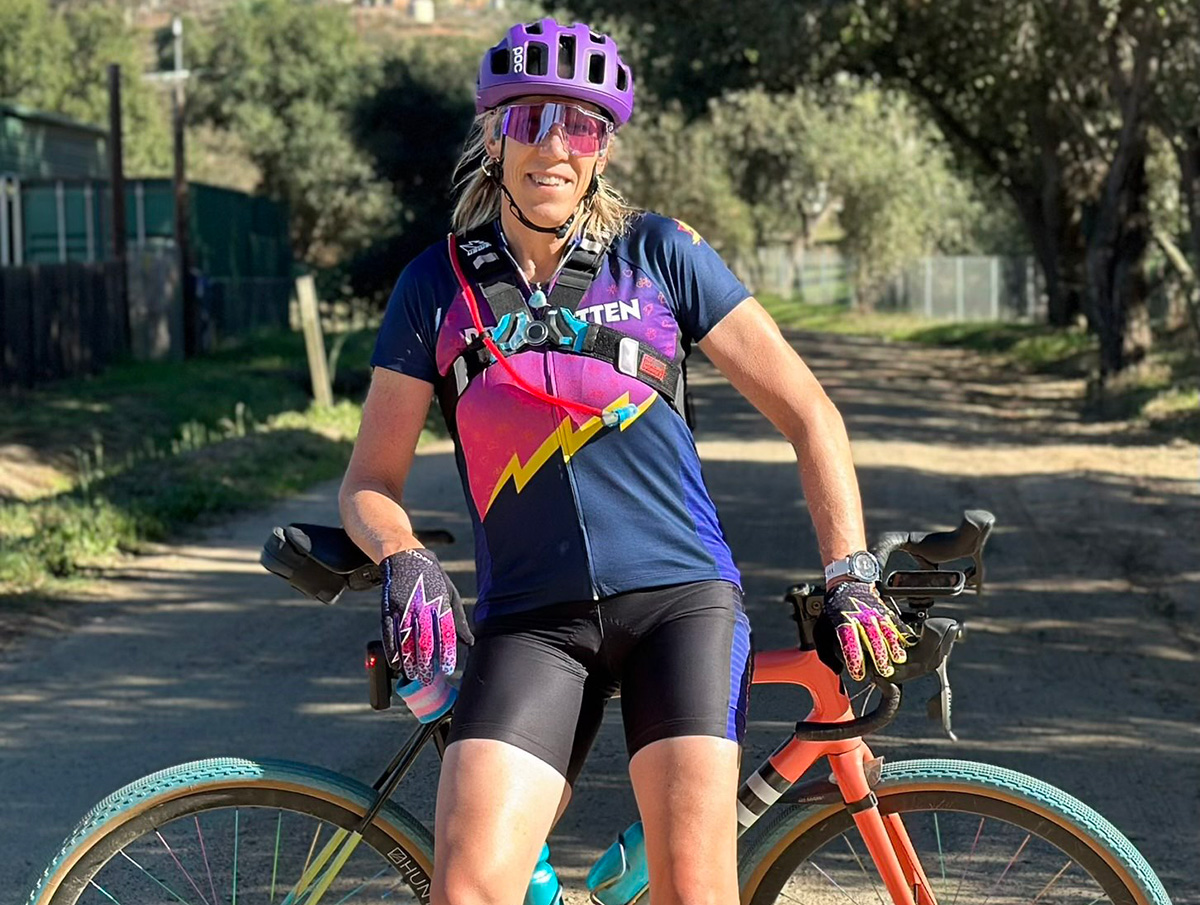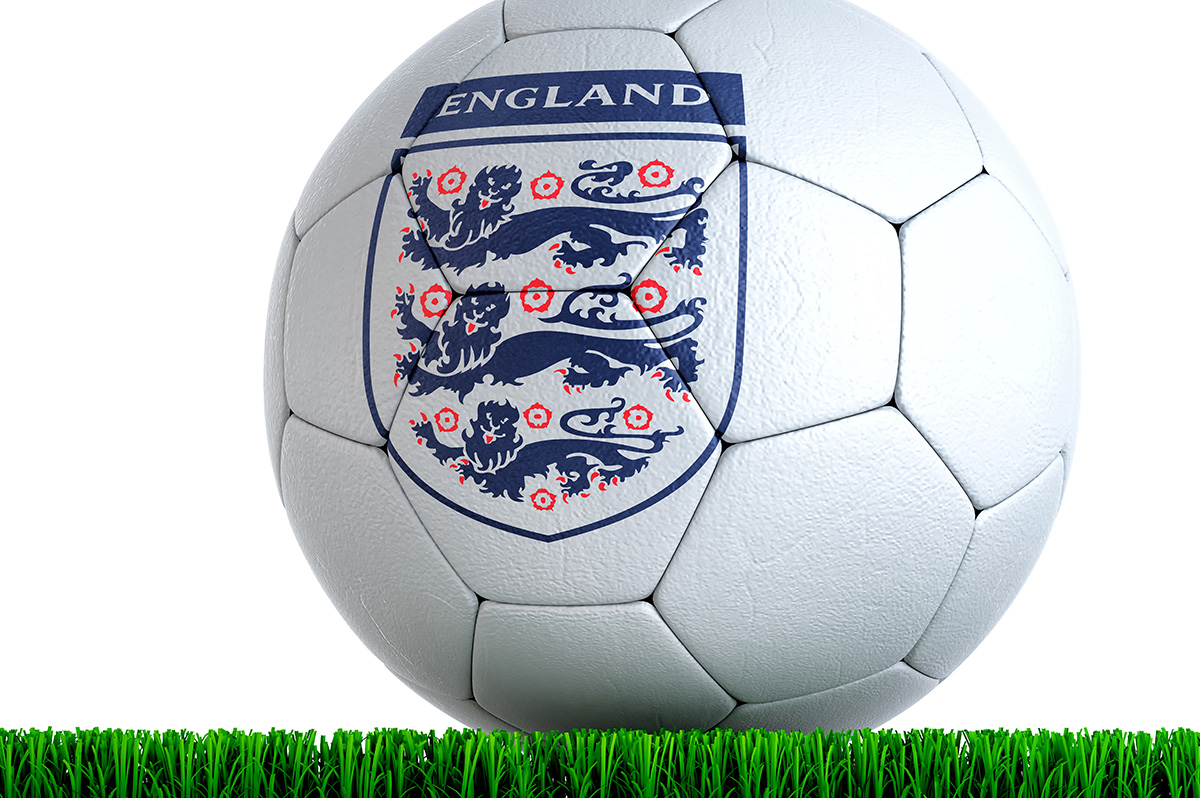Sports
Olympic qualification a hurdle for out Tongan swimmer
Amini Fonua lacks perks many swimmers from other countries enjoy


An elite athlete who represents his or her country on the international stage generally receives living expenses and medical insurance funded from a variety of sources.
The athlete may also receive paid travel and accommodation for competitions, high quality racing gear, training equipment, coaching, post-workout recovery treatment and nutritional supplementation.
This week in the Blade’s Game Changers series, we meet an openly gay, two-time Olympic swimmer from Tonga who is funding his own training to qualify for his third Olympics this summer in Tokyo.
Amini Fonua represents a country where homosexuality is illegal and elite athletes do not receive financial support. To cover his expenses, Fonua works as a barista along with side jobs teaching private swimming lessons and mentoring high school athletes hoping to swim in college.
In an effort to minimize his expenses and commit to the training needed to qualify for the Olympics, Fonua recently moved from California to New Jersey. His daily schedule consists of work and traveling to New York City where he trains with the New York Athletic Club.
Fonua grew up in Auckland, New Zealand in a sports-oriented family and was active in rugby, basketball and swimming. By age 14, he turned his full attention to swimming.
“At that age toxic masculinity enters into the equation in most sports. In swimming, everyone is equal in the water,” Fonua says. “I enjoyed the underwater silence of being in the pool.”
He qualified for the Junior Pan Pacs in Hawaii at age 17 and was inspired by the level of competition. Also on hand at the event were college recruiters from American universities.
Fonua was recruited by Texas A&M University and began his collegiate career there in 2009. As a gay man, it wasn’t an obvious choice to enter a conservative institution in a conservative state. He calls it a leap of faith for his sport.
“My freshman year I swam sore and I swam tired. The jump from high school swimming to college swimming was intense and physically demanding,” Fonua says. “Over the long term, my swimming benefitted from the extra muscle I added from two-a-day practices, weight training and dryland.”
While he was at Texas A&M, New Zealand began passing him over for national teams and international travel. His Tongan heritage had been an important part of his upbringing and a family trip to Tonga in 2009 brought a new direction.
“My father had been whispering in my ear, ‘Swim for Tonga,’” Fonua says. “There were no water safety programs or swim lessons being offered at the time in Tonga. The Tonga Swimming Association was established in 2010 and I was cleared to swim for them internationally.”
He became the first Tongan swimmer to win a gold medal in international competition when he won the 50 meter breaststroke at the 2010 Oceania Swimming Championships in Samoa.
Fonua served as Tonga’s flag-bearer in the 2012 Summer Olympics Parade of Nations in London and competed in the 100 meter breaststroke. He was not out publicly at the time.
“It was a very memorable experience as my mom is from England,” Fonua says. “I was so well versed in my Tongan heritage — it was nice to experience my mother’s culture as a family.”
After graduating from Texas A&M in 2013, Fonua came out publicly and returned to New Zealand where he began training with his childhood coach. His first meet back after a break from competing was the 2014 Gay Games in Cleveland where he represented Team New York Aquatics.
“I really missed the sport and found new inspiration at the Gay Games,” Fonua says. “There is a huge community out there that is passionate about gay sports and swimming.”
His path to the 2016 Rio Olympics included a stop at the 2015 Pacific Games in Papua New Guinea where he won gold medals in the 50-, 100- and 200-meter breaststroke events breaking two Games records.
When Fonua arrived at the 2016 Rio Olympics he was one of a handful of out athletes competing.
“Rio was a lot more fun, happy and freeing for me whereas London was shrouded with guilt and shame,” Fonua says. “There were plenty of gay athletes and coaches in Rio, but they were not a loud bunch. Many of them are in situations where they can’t share their sexuality on the world stage.”
He gained international attention in Rio when he publicly criticized a Daily Beast article that outed fellow Olympians, including some from homophobic countries.
“I spoke out against the dangers of outing and published a series of tweets that went viral, followed up by a number of media interviews that helped to get the story retracted, with an apology,” Fonua says. “The International Olympic Committee ultimately deemed the article “unacceptable,” which was actually the first time the IOC had ever acknowledged any LGBTQ presence.”
In his quest for a third Olympics, Fonua says that this time it is with a sense of purpose that includes being an LGBTQ representative. He recently signed on as an athlete ambassador with Athlete Ally, an LGBTQ sports advocacy group.
He kicked off his Tokyo campaign by competing at the International Gay & Lesbian Aquatics World Championships last summer which were held during Stonewall 50: World Pride NYC.
“Having the power of presence, showing up and doing your best are important when you are representing your community,” Fonua says. “There are many members of the LGBTQ community that are out, proud and successful in the workplace. We need more in the sports community.”
Fonua was disappointed with his 100 breaststroke race at the 2016 Rio Olympics. He says his attitude was one of “bubbling resentment” over not being given the tools and access that other athletes received from their governing bodies.
He is not going to let that happen this time around and has adopted the mantra, “We are the hero of our own story.”
“I want to change the narrative on policy, community support and funding in Tonga. For now, I can’t depend on their support and I have to engage whatever resources are available to me,” Fonua says. “No one is going to swoop in and save me and I owe it to myself to have the best lead up to Tokyo. It is my own responsibility.”
Tonga has never censored Fonua and he takes pride in representing the country. He spent a month last September training in Japan and has a few tune-up meets coming up this year on the road to Tokyo. Included will be the 2020 Oceania Championships in Fiji this June where he is a five-time medalist.
To fund his training camps and competitions, Fonua has set up a GoFundMe page. It isn’t something he is happy about, but it is necessary to complete the purpose of this Olympic cycle.
“I want to be a role model for anyone coming to terms with who they are as a person. It’s important to share this journey with the LGBTQ community and show that you can be your authentic self and achieve a lot of success,” Fonua says. “It’s going to be a big grind to get there and I hope that it ends with that one perfect race.”
Sports
Trans cyclist’s victory sparks outrage in conservative media
Katheryn Phillips is originally from DC

On the heels of UPenn erasing the record of the first openly transgender NCAA Division I All-American swimmer and the U.S. Supreme Court’s decision to tackle bans on trans student-athletes, right wing media is now all hot and bothered about the latest trans woman who won a cycling championship — even though she competed according to the rules.
On Tuesday, 58-year-old Katheryn Phillips finished first in USA Cycling’s Lyons Masters National Championship race for women aged 55-59, with a time of 1:42:10, according to the official results posted by the organization. The record shows her gender as “F” for female.
One second behind Phillips was Julie Peterson, with a time of 1:42:11 — as were three other cyclists: Mary Beth Grier, Andrea Cherniak-Tyson, and Carolyn Maddox.
Peterson, 57, was so outraged, she told Fox News she refused to stand on the podium in second place next to Phillips. Her story was swiftly shared by the New York Post (also owned by Fox’s parent company News Corp.), the Daily Mail, Breitbart, and other conservative media.
Both Peterson and another competitor are accusing USA Cycling of “hiding” that a transgender woman had registered to race.
“It was hidden from us. Katheryn Phillips, KJ’s name, was not on that list. And I checked it up all the way to the point of closure when we couldn’t register online anymore,” Debbie Milne told Fox.
“If I had known, I wouldn’t have spent thousands of dollars in travel and time off work to come and do a race,” Peterson said. Fox welcomed Milne, 56, who finished seventh on Tuesday, to Fox & Friends Thursday morning.
(Video courtesy of Fox News)
Peterson told Fox she did complain to USA Cycling officials prior to the race. Both Milne and Peterson referred to Phillips as a male, and with “he/him” pronouns.
“To be fair to all humans, if we want to say ‘him’ or ‘her,’ he was born a biological male, that is a fact,” Milne said. “And that is the thing that makes it an unfair advantage. Whatever has happened after that is a whole different topic.”
“I said, ‘I don’t want to race against a man,’ and they quickly scolded me and said ‘Oh, you can’t call him a man,’ and I’m like ‘Well, he is a man,’ so I was quickly scolded and corrected that it is a woman and I don’t even know what to say.”
USA Cycling did not respond to the Washington Blade’s emails requesting comment.
Phillips, who goes by Kate and by “KJ,” is a former rugby player with the D.C. Furies, who stated in the comments of a 2024 article published by Zwift Insider that she was the first out trans athlete in the U.S. to compete under the 2004 International Olympic Committee’s guidelines on trans participation.
“When USA Rugby told me about the IOC decision in 2004, I raised my hand to be included. I experience nothing but joy when I play, ride, and race,” Phillips said.
As the Blade has reported, the International Olympic Committee drastically revised those rules in 2021, and in March, Republican lawmakers in D.C. demanded the IOC ban trans female athletes from women’s sporting events altogether.
The Blade also reached out to Phillips for comment but as of press time we have not received a response. She told Zwift Insider in March 2024 she does not let those who disapprove or spread hate impact her performance or her attitude.
“I am unaffected by dissent. I love, I share joy, I am me, and I have been my authentic self for decades,” she said. It’s been reported Phillips came out in 1999, and told Zwift Insider she considers herself a lifelong cyclist.
“I’ve been on a bike for as long as I can remember,” said Phillips. “As kids, my friends and I rode all over town, we were feral kids; no cell phones, no trackers … we just roamed, and nobody got in trouble or hurt bad enough not to ride home … Scrapes/bruises/cuts were not an issue for us. In my teens, I worked for myself as a court/legal messenger, doing all of the work via my bike until I got a car. Raced BMX as a kiddo (when I mowed lawns to cover the race entry fees), I did MTB stuff (non-racing) and Sprint/Olympic Triathlons in my 30’s, and now I’m racing on Zwift, Road/Gravel, and CX in my 50s.”
In the comments section, Phillips made clear she’s not competing to win.
“I don’t do sports for victory, I do it because like many other women, I am an athlete to my core,” she said. “Unlike some, I am not there to WIN, I am there to do my best with the competitors and teammates I have around me trying to do the same…we are in it for the experience. I rejoice in their wins, and a lot of joy is reflected back to me when I have a good day.”
India
Anaya Bangar challenges ban on trans women in female cricket teams
Former Indian cricketer Sanjay Bangar’s daughter has received support

Anaya Bangar, the daughter of former Indian cricketer Sanjay Bangar, has partnered with the Manchester Metropolitan University Institute of Sport in the U.K. to assess her physiological profile following her gender-affirming surgery and undergoing hormone replacement therapy.
From January to March 2025, the 23-year-old underwent an eight-week research project that measured her glucose levels, oxygen uptake, muscle mass, strength, and endurance after extensive training.
The results, shared via Instagram, revealed her metrics align with those of cisgender female athletes, positioning her as eligible for women’s cricket under current scientific standards. Bangar’s findings challenge the International Cricket Council’s 2023 ban on transgender athletes in women’s cricket, prompting her to call for a science-based dialogue with the Board of Control for Cricket in India and the ICC to reform policies for trans inclusion.
“I am talking with scientific evidence in my hand,” Bangar said in an interview posted to her Instagram page. “So, I hope, this makes an impact and I will be hoping to BCCI and ICC talking with me and discussing this further.”
On Nov. 21, 2023, the ICC enacted a controversial policy barring trans women from international women’s cricket. Finalized after a board meeting in Ahmedabad, India, the regulation prohibits any trans player who has experienced male puberty from competing, irrespective of gender-affirming surgery or hormone therapy. Developed through a 9-month consultation led by the ICC’s Medical Advisory Committee, the rule aims to safeguard the “integrity, safety, and fairness” of women’s cricket but has drawn criticism for excluding athletes like Canada’s Danielle McGahey, the first trans woman to play internationally. The policy, which allows domestic boards to set their own rules, is slated for review by November 2025.
Bangar shared a document on social media verifying her participation in a physiological study at the Manchester Metropolitan University Institute of Sport, conducted from Jan. 20 to March 3, 2025, focused on cricket performance. The report confirmed that her vital metrics — including hemoglobin, blood glucose, peak power, and mean power — aligned with those of cisgender female athletes. Initially, her fasting blood glucose measured 6.1 mmol/L, slightly above the typical non-diabetic range of 4.0–5.9 mmol/L, but subsequent tests showed it normalized, reinforcing the study’s findings that her physical profile meets female athletic standards.
“I am submitting this to the BCCI and ICC, with full transparency and hope,” said Bangar. “My only intention is to start a conversation based on facts not fear. To build space, not divide it.”
In a letter to the BCCI and the ICC, Bangar emphasized her test results from the Manchester Metropolitan University study. She explained that the research aimed to assess how hormone therapy had influenced her strength, stamina, hemoglobin, glucose levels, and overall performance, benchmarked directly against cisgender female athletic standards.
Bangar’s letter to the BCCI and the ICC clarified the Manchester study was not intended as a political statement but as a catalyst for a science-driven dialogue on fairness and inclusion in cricket. She emphasized the importance of prioritizing empirical data over assumptions to shape equitable policies for trans athletes in the sport.
Bangar urged the BCCI, the world’s most influential cricket authority, to initiate a formal dialogue on trans women’s inclusion in women’s cricket, rooted in medical science, performance metrics, and ethical fairness. She called for the exploration of eligibility pathways based on sport-specific criteria, such as hemoglobin thresholds, testosterone suppression timelines, and standardized performance testing. Additionally, she advocated for collaboration with experts, athletes, and legal advisors to develop policies that balance inclusivity with competitive integrity.
“I am releasing my report and story publicly not for sympathy, but for truth. Because inclusion does not mean ignoring fairness, it means measuring it, transparently and responsibly,” said Bangar in a letter to the BCCI. “I would deeply appreciate the opportunity to meet with you or a representative of the BCCI or ICC to present my findings, discuss possible policy pathways, and work towards a future where every athlete is evaluated based on real data, not outdated perceptions.”
Before her transition, Bangar competed for Islam Gymkhana in Mumbai and Hinckley Cricket Club in the U.K., showcasing her talent in domestic cricket circuits. Her father, Sanjay Bangar, was a dependable all-rounder for the Indian national cricket team from 2001 to 2004, playing 12 test matches and 15 One Day Internationals. He later served as a batting coach for the Indian team from 2014 to 2019, contributing to its strategic development.
Cricket in India is a cultural phenomenon, commanding a fanbase of more than 1 billion, with more than 80 percent of global cricket viewership originating from the country.
The International Cricket Council, the sport’s governing body, oversees 12 full member nations and more than 90 associate members, with the U.S. recently gaining associate member status in 2019 and co-hosting the 2024 ICC Men’s T20 World Cup. The BCCI generated approximately $2.25 billion in revenue in the 2023–24 financial year, primarily from the Indian Premier League, bilateral series, and ICC revenue sharing. The ICC earns over $3 billion from media rights in India alone for the 2024–27 cycle, contributing nearly 90 percent of its global media rights revenue, with the BCCI receiving 38.5 percent of the ICC’s annual earnings, approximately $231 million per year.
Women’s cricket in India enjoys a growing fanbase, with over 300 million viewers for the Women’s Premier League in 2024, making it a significant driver of the sport’s global popularity. The International Cricket Council oversees women’s cricket in 12 full member nations and over 90 associate members, with the U.S. fielding a women’s team since gaining associate status in 2019 and competing in ICC events like the 2024 Women’s T20 World Cup qualifiers. The BCCI invests heavily in women’s cricket, allocating approximately $60 million annually to the WPL and domestic programs in 2024–25, while contributing to the ICC’s $20 million budget for women’s cricket development globally. India’s media market for women’s cricket, including WPL broadcasting rights, generated $120 million in 2024, accounting for over 50 percent of the ICC’s women’s cricket media revenue.
“As a woman, I feel when someone says that they are women, then they are, be trans or cis. A trans woman is definitely the same as a cis woman emotionally and in vitals, and specially, when someone is on hormone replacement therapy. Stopping Anaya Bangar from playing is discrimination and violation of her rights. It is really sad and painful that every trans woman need to fight and prove their identity everywhere,” said Indrani Chakraborty, an LGBTQ rights activist and a mother of a trans woman. “If ICC and BCCI is stopping her from playing for being transgender, then I will say this to be their lack of awareness and of course the social mindsets which deny acceptance.”
Chakraborty told the Blade that Bangar is an asset, no matter what. She said that the women’s cricket team will only benefit by participation, but the discriminating policies are the hindrance.
“Actually the transgender community face such discrimination in every sphere. In spite of being potent, they face rejection. This is highly inhuman. These attitudes is regressive and will never let to prosper. Are we really in 2025?,” said Chakraborty. “We, our mindset and the society are the issues. We, as a whole, need to get aware and have to come together for getting justice for Anaya. If today, we remain silent, the entire community will be oppressed. Proper knowledge of gender issues need to be understood.”
The BCCI and the International Cricket Council have not responded to the Blade’s repeated requests for comment.
Sports
English soccer bans transgender women from women’s teams
British Supreme Court last month ruled legal definition of woman limited to ‘biological women’

The organization that governs English soccer on Thursday announced it will no longer allow transgender women to play on women’s teams.
The British Supreme Court on April 16 ruled the legal definition of a woman is limited to “biological women” and does not include trans women. The Football Association’s announcement, which cites the ruling, notes its new policy will take effect on June 1.
“As the governing body of the national sport, our role is to make football accessible to as many people as possible, operating within the law and international football policy defined by UEFA (Union of European Football Associations) and FIFA,” said the Football Association in a statement that announced the policy change. “Our current policy, which allows transgender women to participate in the women’s game, was based on this principle and supported by expert legal advice.”
“This is a complex subject, and our position has always been that if there was a material change in law, science, or the operation of the policy in grassroots football then we would review it and change it if necessary,” added the Football Association.
The Football Association also acknowledged the new policy “will be difficult for people who simply want to play the game they love in the gender by which they identify.”
“We are contacting the registered transgender women currently playing to explain the changes and how they can continue to stay involved in the game,” it said.
The Football Association told the BBC there were “fewer than 30 transgender women registered among millions of amateur players” and there are “no registered transgender women in the professional game” in England, Scotland, Wales, and Northern Ireland.
The Scottish Football Association, which governs soccer in Scotland, is expected to also ban trans women from women’s teams.
-

 Federal Government2 days ago
Federal Government2 days agoTreasury Department has a gay secretary but LGBTQ staff are under siege
-

 Virginia3 days ago
Virginia3 days agoDefying trends, new LGBTQ center opens in rural Winchester, Va.
-

 District of Columbia2 days ago
District of Columbia2 days agoGay GOP group hosts Ernst, 3 House members — all of whom oppose Equality Act
-

 District of Columbia2 days ago
District of Columbia2 days agoD.C. police seek public’s help in July 5 murder of trans woman






